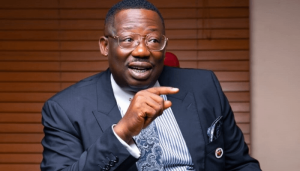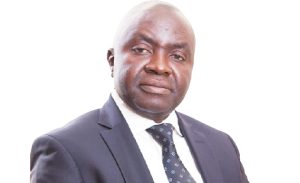- MPC’s decision disappointing for industry players- NACCIMA
Onome Amuge
Olayemi Cardoso, CBN governor
The cautious stance of the Monetary Policy Committee (MPC) of the Central Bank of Nigeria (CBN) has drawn divergent reactions from financial analysts and industry stakeholders over the most effective policy levers to address Nigeria’s economic challenges.
The productive sector of the economy under the umbrella of the Nigerian Association of Chambers of Commerce, Industry, Mines, and Agriculture (NACCIMA), said the decision not to cut rates by the MPC is anti-productive for the economy, expressing utter disappointment.
The MPC, at its 300th meeting held in May, voted unanimously to maintain all key policy parameters, keeping the Monetary Policy Rate (MPR) at 27.50 per cent. This decision, extends a “wait-and-see” approach initiated in February 2025, reflecting a cautious stance as the apex bank assesses the effects of previous tightening measures amid renewed financial pressures.
The MPC’s resolve to hold the MPR, alongside retaining the asymmetric corridor at +500/-100 basis points, the Cash Reserve Ratio (CRR) at 50.00 per cent for deposit money banks (DMBs) and 16.00 per cent for merchant banks, and the Liquidity Ratio at 30.00 per cent, was announced by CBN Governor Yemi Cardoso.
Kelvin Emmanuel, an economist and energy analyst, cast doubt on the CBN’s capacity to stabilise prices primarily through monetary policy. Emmanuel argued that the drivers of Nigeria’s inflation are predominantly fiscal, necessitating supply-side interventions and increased domestic production.
“The government needs to tackle supply; it needs to tackle production output,” Emmanuel stated in a television appearance following the MPC announcement. He pointed to food inflation as a major contributor, noting that food accounts for approximately 55 per cent to 60 per cent of Nigeria’s Consumer Price Index (CPI) basket, with energy contributing around 20 per cent. “Between food and energy, you have 80 per cent as drivers of inflation in Nigeria,” he asserted, suggesting that monetary tools alone are insufficient to address these core issues.
Emmanuel was particularly critical of the high Cash Reserve Ratio (CRR), a tool used by central banks globally to manage money supply. He noted that while the globally recommended average CRR, according to the bank for International Settlements, is around 15 per cent, Nigeria’s CRR has escalated from 14 per cent a decade ago to 32.5 per cent between 2022 and today under previous CBN management. He alleged that a portion of these funds was used to finance Ways and Means advances, a practice he deemed a violation of Section 38 of the CBN Act of 2007.
The implication of the current high CRR, Emmanuel argued, is a liquidity squeeze in the financial system. He noted that coupled with elevated interest rates, this hinders banks’ ability to lend effectively to the real sector. He advocated for a tiered cash reserve ratio system, similar to a model he observed in Ghana, where banks are rewarded with lower CRR based on their Loan Deposit Ratio (LDR) performance.
“The better a bank cooperates with its LDR, the more you reduce their CRR as a way to incentivize performance of its LDR and lending to the real sector,” he explained.
On their part, analysts at Cowry Research interpreted the MPC’s decision as a deliberate pause, signaling the CBN’s intention to allow previous policy adjustments to permeate the economy fully before making new moves. This strategy, they explained, reflects confidence in the medium-term effectiveness of earlier interventions while also acknowledging the persistent external and internal uncertainties.
However, Cowry Research also raised concerns about the elevated cost of borrowing, which continues to constrain access to credit for both businesses and households. This tight credit environment, they warned, poses downside risks to private sector-led investment and could weigh on broader economic activity or output growth in the near to medium term.
Looking ahead, Cowry Research identified inflation as a critical variable. “If cost pressures—driven by FX instability, potential increases in pump prices for petroleum motor spirit (PMS), and other structural inefficiencies—fail to subside, Nigeria could see inflation climb once more,” their analysis stated. This, they argued, would erode real interest rates and potentially undermine monetary stability if current nominal rates are not adjusted promptly. The analysts concluded that the balance between sustaining growth and containing inflation remains delicate, and the CBN’s future actions will need to reflect evolving macroeconomic dynamics.
Kelvin Oye, NACCIMA president
The Nigerian Association of Chambers of Commerce, Industry, Mines, and Agriculture (NACCIMA), through Dele Kelvin Oye, the chambers national president and chairman of the Organised Private Sector of Nigeria (OPSN), , expressed disappointment with the CBN’s decision.
While acknowledging that the retention of the 27.5 per cent MPR was disappointing for industry players, Oye described it as a logical response to the prevailing conditions of liquidity management and the bank’s current net borrowing status.
In a statement responding to the CBN’s Orthodox Monetary Policy shift, Oye highlighted the complex interplay of modest gains in reserve buffers and a troubling escalation in liquidity management costs revealed in the CBN’s recent financial disclosures. He conceded that the resurgence of orthodox monetary policies signifies an intention to restore market discipline and enhance the credibility of monetary interventions.
However, Oye pivoted to the repercussions for the private sector. “Yet, as we applaud these strides toward improved transparency and inflation targeting, it is imperative to address the pressing need for accessible financing through fiscal policies, particularly for the private sector, especially against the background of the World Bank’s recent warning on Nigeria’s growing poverty,” he stated.
NACCIMA acknowledged that businesses are struggling with exorbitant borrowing costs that stifle growth and innovation. While commending the CBN’s necessary recalibration away from direct financing of fiscal deficits, Oye emphasised that the repercussions of this policy, particularly in the form of elevated interest rates, inhibit the industry’s ability to secure loans at single-digit rates that are essential for sustainable growth and the alleviation of poverty.
Oye commended the collective advocacy for reduced public sector borrowing at the subnational level which has yielded tangible results, evidenced by CBN-reported repayment figures.
However, he stressed the urgent need for a synchronised approach between monetary policy and economic growth. He urged that the CBN’s commitment to fiscal prudence must be accompanied by measures that promote a conducive environment for private sector investment and growth.
The NACCIMA President also drew attention to the precarious situation marked by rising liquidity management costs and losses from derivative settlements revealed in the CBN’s financial results, despite incremental improvements in its asset composition. He expressed anticipation that the CBN would leverage a projected 2024 trading surplus to transition to a net saving position, thereby potentially facilitating a reduction in the MPR and alleviating current pressures on businesses seeking reasonably priced loans.
Oye concluded by pledging NACCIMA’s readiness to collaborate with the CBN and government, aiming to establish an investment ecosystem that not only supports reasonable access to capital but also promotes educational financing essential for developing a skilled workforce.
He reiterated the call for a harmonious alignment of fiscal and monetary policies to ensure a stable economic trajectory, achievable only through proactive dialogue and collaboration with the private sector.
Muda Yusuf, CEO, CPPE
In contrast to the more critical or cautiously optimistic assessments, the Centre for the Promotion of Private Enterprise (CPPE) offered a more straightforward commendation of the MPC’s decision to pause rate hikes.
Muda Yusuf, chief executive officer of CPPE, stated that hiking rates was really not an option and that holding rates amidst lingering global economic uncertainty triggered by disruptive tariff regimes and geopolitical issues was understandable.
Yusuf welcomed the decision, expressing CPPE’s long-standing concern that both the Cash Reserve Ratio (CRR) and the Monetary Policy Rate (MPR) were already very high, creating difficult financing conditions for investors in the real economy. He reiterated that fiscal and monetary policy coordination remains a critical imperative for macroeconomic stability.
Meanwhile, the MPC cited a need to monitor a resurgence of foreign exchange (FX) market volatility, largely triggered by renewed global risk aversion following the US administration’s imposition of fresh tariff measures, which have led to a flight to safety among foreign portfolio investors (FPIs) and a subsequent tightening of dollar supply in Nigeria’s FX markets.
While the MPC noted relative improvements in some macroeconomic indicators, including a narrowing gap between the Nigerian Foreign Exchange Market (NFEM) and Bureau De Change (BDC) windows, a positive balance of payments, and easing petrol prices, it acknowledged underlying inflationary pressures driven largely by high electricity prices, persistent foreign exchange demand pressure and other legacy structural factors.
The Committee commended government efforts to boost food supply and combat insecurity, but urged sustained momentum and agricultural input provision. It also called on fiscal authorities to enhance foreign exchange earnings, particularly from gas, oil, and non-oil exports, expressing concern over the recent decline in crude oil prices due to increased non-OPEC production.











